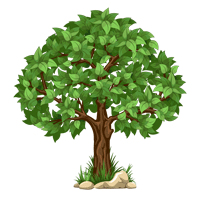


There has been great excitement in the village with the arrival of three mute swans, a pen and two of her last years cygnets. They have been here for a week as I write, although as they can’t breed, I guess they will be flying off fairly soon. They are however very happy to be fed by enthusiastic villagers including many children during this lockdown period. Two large white mature Whooper swans, a long way from their breeding grounds in Iceland, were seen at Hockenhull Platts in January. You can see their distinctive yellow beaks with long black pointed ends in the accompanying photograph. A delightful little egret, a small white “heron” has also arrived in the area and can be regularly seen feeding on the wetlands, which is excellent news. Several oystercatchers, normally a wading bird seen on the seashore have been present all winter, and can be regularly seen flying over farmland. We think that several pairs of these strikingly black & white birds with orange red bill and long pink legs have actually bred here for the last three years, as have a similar number of lapwings. Lapwings or pee-wits were once one of the most common birds in rural Cheshire, and I’m convinced that they are now making a comeback in our Parish. These small waders appear black and white at a distance, and have a distinctive black breast band and wispy crest. They always flap their wings in flight, often calling to each other with their pee-wit, pee-wit calls, and sometimes appear in large groups. I had a count of 500+ a week or so ago during the floods, and this was confirmed by Joe, one of my friends who saw similar numbers over Hockenhull from the Stamford Bridge direction.
He has also witnessed regular sightings of both barn and tawny owls in fields near the Platts, and visitors to the bridges are getting regular sightings of buzzard, kestrel and sparrowhawks. These same three species are also very common along the canal at Rowton, and appear to be on the look out for rodents on the newly cleared land between the A41 and the canal. Stonechats seem to be wintering well, with several pairs on the wet meadow, together with cettis warblers and meadow pipits, with regular sightings of all three. Back at the Pit in Christleton, there are daily sightings of fish-eating cormorants and grey herons, although in the accompanying pictures, Joe captured a superb shot of a grey heron with a toad in its beak along the River Gowy. Cormorants are large black” heron” sized birds with yellow faces and long bills, ideal for catching fish, can be seen on the canal and at the pit, often catching quite large fish and eating them whole. Smaller red beaked moorhens and white headed coots are actively looking for nest sites at the Pit, usually searching for secret places in the reed beds or rushes. There have also been up to twenty shoveler duck on the Pit, but they tend to stay for the winter and fly off elsewhere to breed each spring. The males are very attractive ducks, mallard size, but highly coloured and with a distinctive green shovel like bill, are followed around in circles by the much plainer brown feathered females. They can be seen most days circling each other in the middle of the Pit, a strange but distinctive habit.
Although reports say that house sparrows and starlings are now very scarce in the area, we seem to have good numbers coming into the gardens for food, or breeding in the eves of houses nearby. The starlings in particular can be very colourful as shown below, and often gather in very large groups, or murmurations, as seen on the recent Winterwatch programme on BBCI, where we saw them gathering in huge numbers under Aberystwyth pier, but I understand from friends that they can also be seen this year at dusk gathering around the canal basin and adjacent Sealand Road in Chester. Two years ago a huge murmuration could be seen each day in Boughton and Vicars Cross causing great excitement to birdwatchers, but not so much to residents who suffered huge quantities of their guano on their roofs and gardens.
-

Black Headed Gull
-

Barn Owl at Stapleford
-

Cormorant at the Pit
-

Grey Heron (Joe O'Hanion)
-

Coot
-

Swans at Christleton Pit
-

Oystercather
-

Lapwing
-

Starling
-

Moorhen
-

Kestrel
-

Young Starling
-

Cormorant at Christleton Pit
-

Moorhen
-

Grey Heron
-

Little Egret
-

Sparrowhawk (John Bail)
-

Buzzard at Hockenhull
-

Shoveler at Christleton Pit
-

Stonechat at Platts
-

Murmuration
-

Little Egret
-

Whooper Swans
-

Oystercatchers
-

Coot Bathing
-

Lapwings over Hockenhull
-

Little Egret Feeding
































